Orgies in a monastery and sex with a hundred eunuchs: the 5 most notorious sexual scandals of the Middle Ages
Categories: History | Society | World
By Pictolic https://pictolic.com/article/orgies-in-a-monastery-and-sex-with-a-hundred-eunuchs-the-5-most-notorious-sexual-scandals-of-the-middle-ages.htmlLeonardo Yes Vinci was accused of being fond of orgies. William the Conqueror, despite all his successes, was called a "Bastard" until the end of his life, because his father sinned with the daughter of a tanner. Pope John XXIII was accused of raping 300 nuns. And the son of Pope Alexander VI, Cesare Borgia, arranged evenings in the papal palace, where naked prostitutes picked chestnuts from the floor.
In general, then they also knew how to have fun. We have collected 5 of the most outstanding stories for you. Although, of course, there are much more of them.
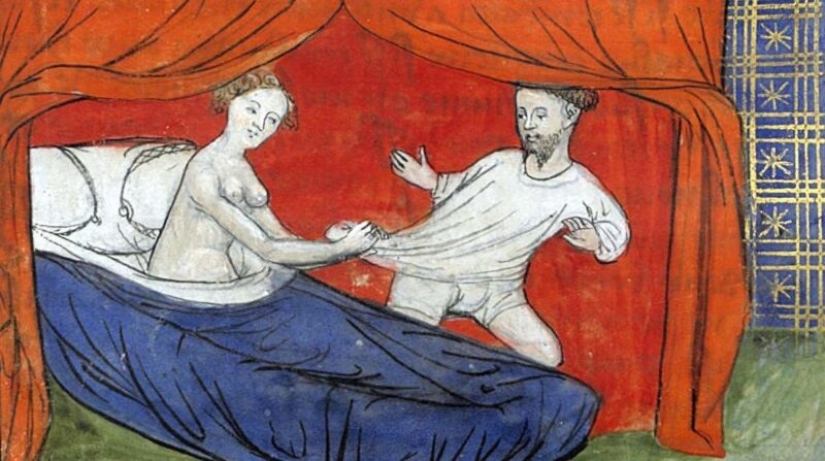
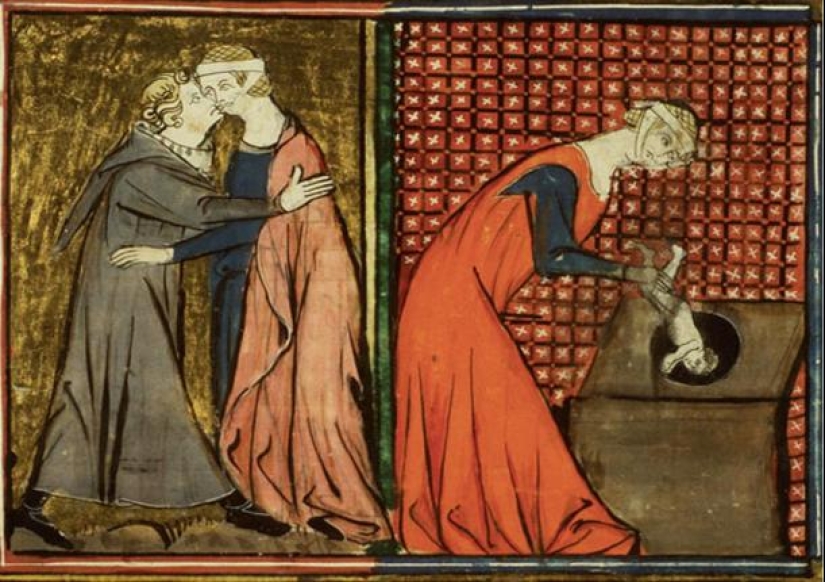
Sexual intercourse with a monk and getting rid of the fruit of love. A medieval miniature.
Disputes about whether to attribute the beginning of the XVI century to the Middle Ages or not are still going on. But this is not essential for our history, especially since it began in the XIII century. Littlemore Convent was built in Oxfordshire in 1245, and from the very beginning the spiritual life there somehow did not work out.
At first, this place became famous as dangerous: apparently, the contractors saved a lot on materials and the first nuns who entered it daily prayed that the ceiling would not collapse on their heads. Then there were bad rumors about Littlemore among the pilgrims: allegedly, the abbesses of the monastery offered pilgrims a bed for the night, and then put up huge bills for it.
By the XV century, the monastery had already become famous as a real nest of debauchery and general theft (few people remember that these two things often go hand in hand). The nuns lured young rural guys to their monastery and arranged orgies there. And when the wine warehouses were emptied and there was nothing to drink, they began to sell utensils.
When the messenger arrived, he found that everything was even worse than it seemed. Judging by the denunciations. Littlemore has become a real brothel. The nuns were starving because they had sold almost all their food supplies. There's no wine left. But the most scandalous thing: the abbess gave birth to a girl from a priest from A Kent named Richard Hughes.
Most of the candlesticks and silver trays sold by the head of the monastery were saved up for a dowry for her daughter. So at least she was no stranger to maternal love.

The Priory Pub in its best years.
It ended even more bizarre than it started. By the decree of the bishop, the monastery was disbanded (before that, the nuns set it on fire, almost burning it to the ground). The building was abandoned, and after a couple of hundred years, the Priory pub was opened in the only surviving annex. In 2013, he was defeated by a crowd of drunk football fans.
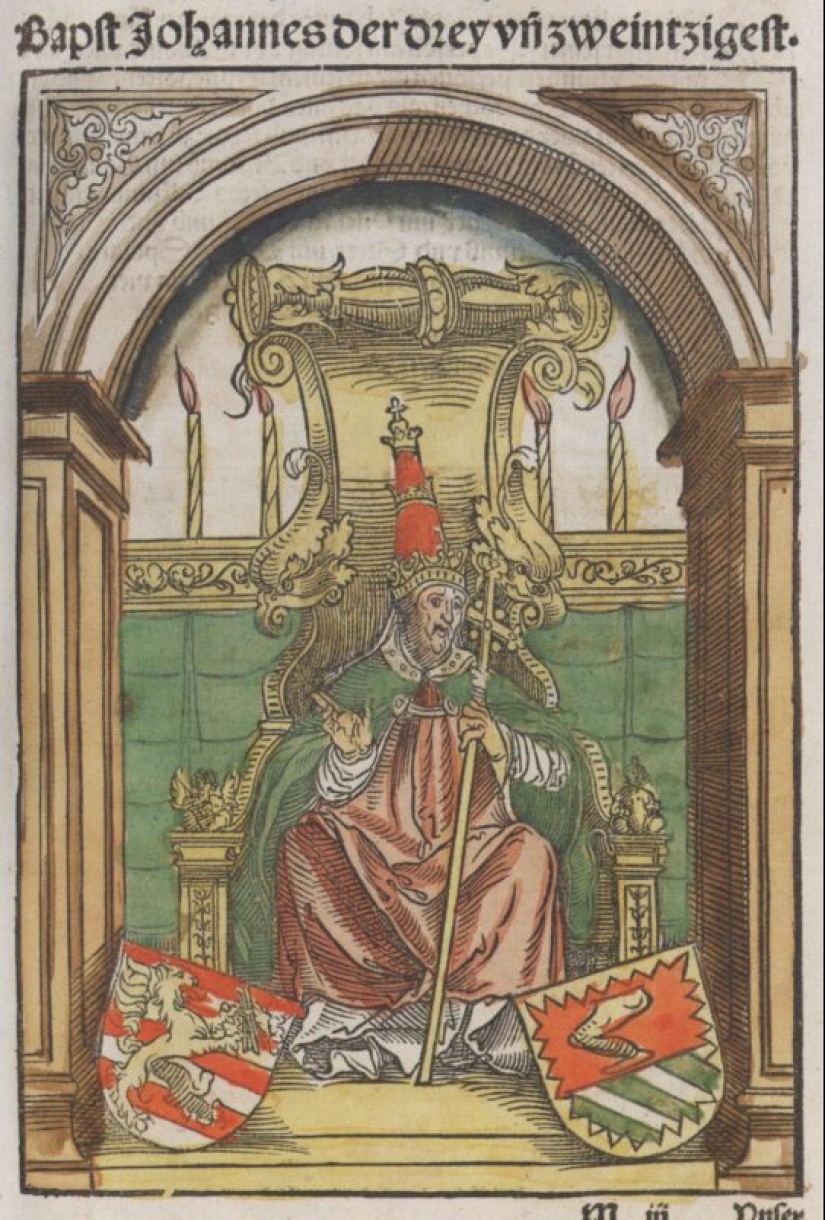
Pope Balthazar Kossa is such an odious figure that he deserves a separate article. He was fantastically sinful and monstrously lucky. Having started as a simple student who was engaged in robbery at the University of Bologna, he grew up to be the leader of a pirate team that was raging on the Mediterranean coast.
But even the small sins of his youth, as well as the fact that his mistress was a woman officially declared a witch and sentenced to be burned, did not bother Pope Urban VI at all. He took a smart guy into his service and allowed him to rise to the rank of bishop. After the death of Urban, Balthazar himself sat on the throne under the name John XXIII, although not in Rome, and in Pisa.
There were more sophisticated accusations, for example, an alleged orgy with an entire family, including a father, mother, son and young daughters. An ordinary person would have been executed for half of this. But Balthazar was not a simple man, he had the audacity to come to the new Pope with a confession, and he returned to him the dignity of bishop of Bologna. By the way, a monument was erected on his grave, which was designed by Donatello himself.
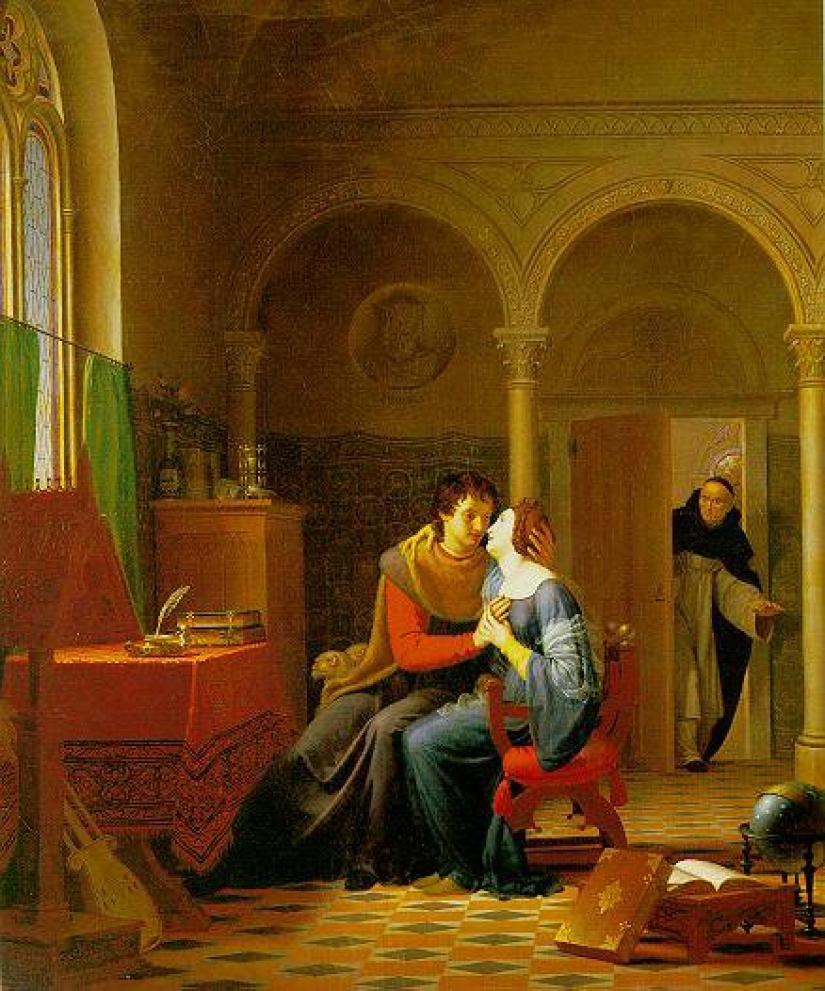
Pierre Abelard is one of the most famous philosophers of the Middle Ages. He was an ambitious cleric, a brilliant orator, preacher, poet, theologian and scholastic. But it was not his philosophical works that made him truly famous, but a sexual scandal that stirred up the whole of Europe.
Abelard, among other things, worked part-time as a teacher. One of the spiritual patrons of Paris, Canon Fulber, entrusted him with his 17-year-old niece Eloise — and, as you might guess, soon regretted it. Instead of studying scholasticism, Abelard and Eloise began to study anatomy and at some point the girl became pregnant, but this was only the beginning of the real problems.
Fulber ordered Pierre to marry the student and recognize his son. Abelard agreed. However, at some point, Eloise returned to her uncle's house — despite the wedding, she refused to marry. It seemed to her that this would destroy Abelard's brilliant spiritual career.
Abelard became a monk, and so did Heloise. Both of them continued to send each other heartfelt platonic love letters until their deaths, over which the whole of France sobbed.
Fulber was recorded as villains, Pierre-as innocently injured thinkers, Eloise became a symbol of pure and immaculate love. Their son, named Astrolabe, was left without parents — in the care of the same Fulber. In general, now this story seems damn unhealthy from all sides, and too ardent uncle even causes some sympathy. But who are we to judge the affairs of the XII century?
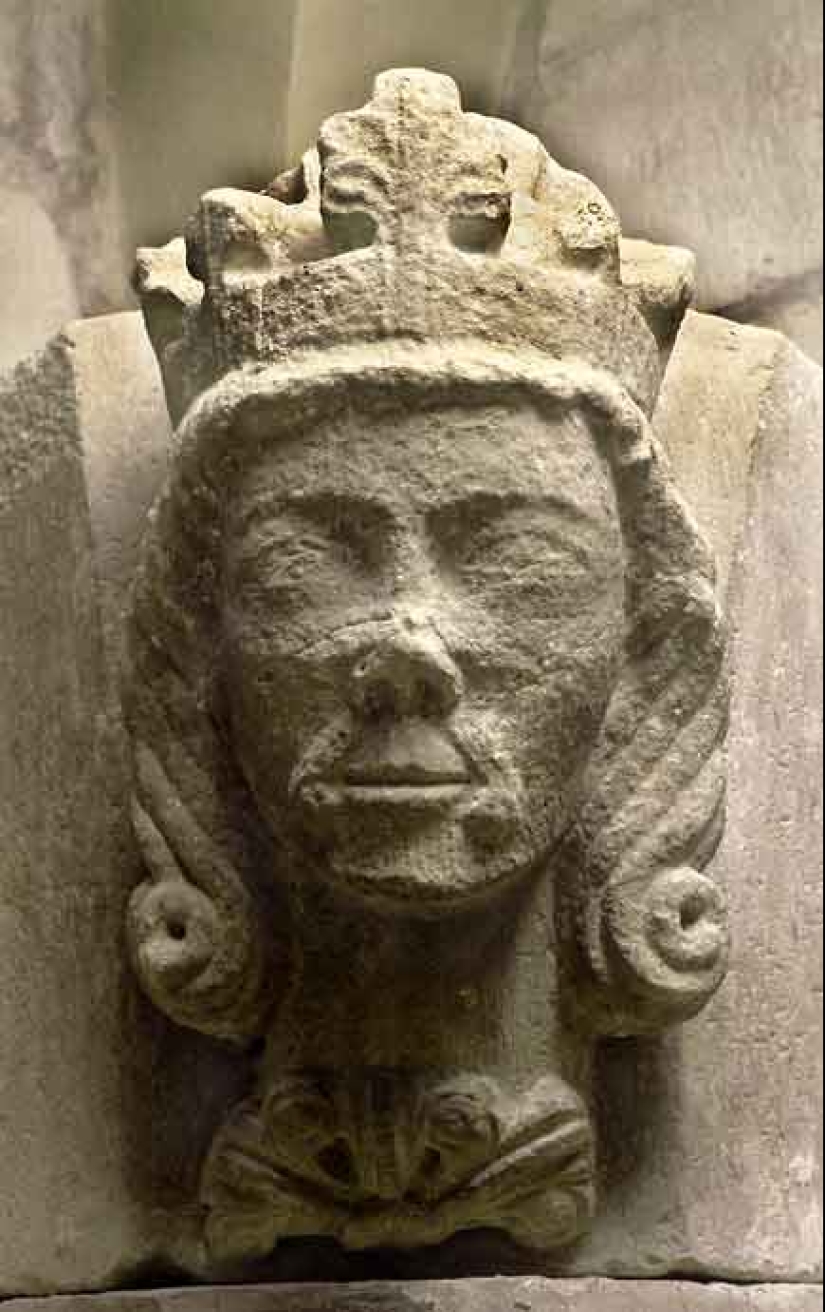
Swedish King Valdemar I Birgersson managed to lose everything — both power and life — in the most stupid way. He lost the respect of the Pope, was publicly declared "not responsible for his actions" (actually an idiot) and eventually lost the throne — and all because of his inability to restrain his Gungnir in his pants.
Valdemar was married to the daughter of the Danish King Eric IV, nicknamed the Plow Penny. He also masterfully squandered his throne because of huge taxes, but at least he managed to settle his daughters well. The eldest, Sofia, had just become Waldemar's wife, and the youngest, Jutta, ended up in a monastery.
And even more than that: the Swedish king was so crazy that he went personally to The pope went to Rome to ask for permission to divorce his older sister (who was too boring) in order to marry the younger one (who loved adventure and spontaneous sex). Even in the XVI century, Henry VIII had to go to the creation of his own church to deal with his adulteries. What can we say about the XIII century.
In general, the Pope not only refused Valdemar, but also obliged him to pay a colossal indulgence. After returning home, the king "delighted" the applicants with excellent news: first, the church officially recognized him as a grave sinner, and secondly, ordinary taxpayers will pay for it.
Naturally, other contenders for the throne immediately arose, Valdemar was declared incompetent and deposed. Just like that, he did not give up, and for a long time he tried to raise uprisings and attract foreign troops to the country, but in vain. This only worsened his situation and instead of house arrest, it all ended in murder: apparently, he was simply starved to death in the Nykoping castle. The fortress, by the way, was eventually destroyed by rebels loyal to the king, so it can also be recorded as a victim of this story.

But not only European monarchs and nuns have succeeded in sinful deeds. The Chinese rulers had overtaken them in depravity thousands of years earlier. However, the emperors lived extremely isolated, and their antics, even the most perverted, were ignored. Stories about imperial pranks were leaked to the people only when it could deprive the dynasty of the Heavenly Mandate.
For example, Emperor Wenxuan liked to run naked (and even in female makeup) in front of his subjects and could easily fall asleep drunk on the street. Emperor Gaozu hated Confucian scientists so much that he knocked off their hats and urinated in them in front of all honest people; ironically, he also made Confucianism a state ideology — when he realized how convenient it was for governing the country.
Emperor Di Xin ordered to make himself a pond filled with wine and islands of snacks — many of his officials drowned in it, to the joy of the monarch. However, he himself was eventually overthrown, and he ended his reign by jumping into a flaming brazier.
Against their background, the Zhengde emperor from the Ming Dynasty looks a little more adequate — he at least tried to manage the country, and did not drink like hell. The young ruler learned Arabic, Mongolian and Sanskrit; conducted successful military campaigns against the Mongols, secured the northern borders, and prevented a major uprising.
But he is even more remembered for his eccentric behavior. Zhengde took lovers among the eunuchs, and he adopted a hundred of them. He also liked to disguise himself as a simple citizen and go to cheap brothels, sometimes bringing unsuspecting prostitutes to his palace.
But the most egregious, according to contemporaries, was the fact that the emperor's favorite lover was an Islamic subject, Said Hussein, the governor of the city of Hami. However, it is assumed that this was more a political than a love affair — the city was the most important stronghold in protecting the country from the Mongols. Apparently, for Zhengde, this was the most reliable and familiar way of rallying with subordinates.
Keywords: Monastery | Orgy | Scandals | The middle ages
Post News ArticleRecent articles

It's high time to admit that this whole hipster idea has gone too far. The concept has become so popular that even restaurants have ...

There is a perception that people only use 10% of their brain potential. But the heroes of our review, apparently, found a way to ...
Related articles

Ancient Rome is the foundation of modern civilization. The Eternal City has given us jurisprudence, principles of government, and a ...

On August 17, 1988, a Tu-154B plane with 176 people on board took off from Kiev to Kuibyshev (now Samara). Among them was ...

Today, August 16, marks the birthday of one of the most legendary and scandalous singers of our time – Madonna. She turns 63 ...

New Year's is a time to surprise and delight loved ones not only with gifts but also with a unique presentation of the holiday ...